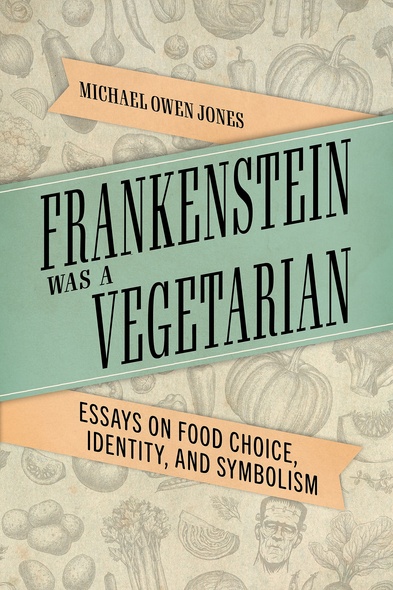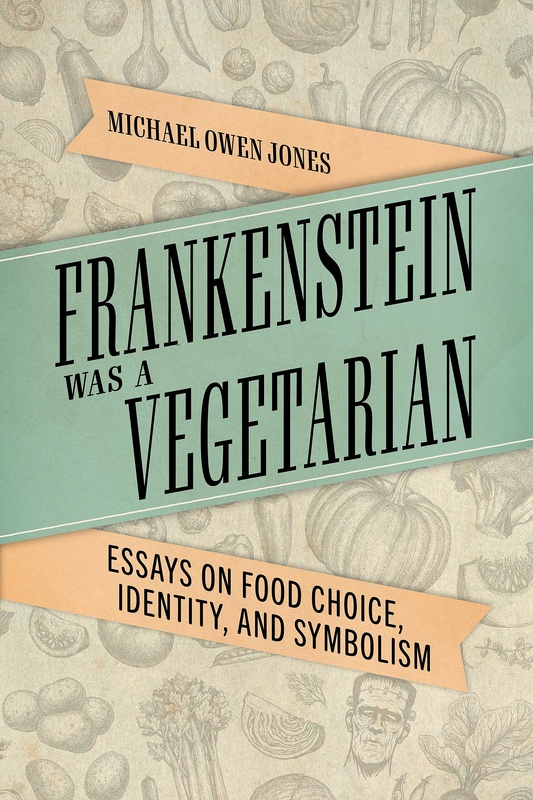
Frankenstein Was a Vegetarian
Essays on Food Choice, Identity, and Symbolism
In Frankenstein Was a Vegetarian: Essays on Food Choice, Identity, and Symbolism, Michael Owen Jones tackles topics often overlooked in foodways. At the outset he notes it was Victor Frankenstein’s “daemon” in Mary Shelley’s novel that advocated vegetarianism, not the scientist whose name has long been attributed to his creature. Jones explains how we communicate through what we eat, the connection between food choice and who we are or want to appear to be, the ways that many of us self-medicate moods with foods, and the nature of disgust. He presents fascinating case studies of religious bigotry and political machinations triggered by rumored bans on pork, the last meal requests of prisoners about to be executed, and the Utopian vision of Percy Bysshe Shelley, one of England’s greatest poets, that was based on a vegetable diet like the creature’s meals in Frankenstein.
Jones also scrutinizes how food is used and abused on the campaign trail, how gender issues arise when food meets politics, and how eating preferences reflect the personalities and values of politicians, one of whom was elected president and then impeached twice. Throughout the book, Jones deals with food as symbol as well as analyzes the link between food choice and multiple identities. Aesthetics, morality, and politics likewise loom large in his inquiries. In the final two chapters, Jones applies these concepts to overhauling penal policies and practices that make food part of the pains of imprisonment, and looks at transforming the counseling of diabetes patients, who number in the millions.
The subjects are fascinating, and the analysis is crisp and piercing. The book is important for its extraordinary bibliography and detailed notes. It’s on my shelf to read and refer to again and again.
Anyone with an interest in our complex and often contradictory relationships with food, will find this book to be an entertaining and thought-provoking read.
Food is the vehicle for how we communicate, symbolize, and encode with one another. Knowing this, food may exert great power, for better or for worse. As folklore and anthropology increasingly include the study of foodways, books like Frankenstein Was a Vegetarian provide guidance on how to approach studying symbols within diverse cultures and shifting societies. I highly recommend this book to anyone beginning work in the field of foodways and folklore, as well as more seasoned scholars of foodways and folklore who seek to connect the two.
Frankenstein Was a Vegetarian: Essays on Food Choice, Identity, and Symbolism makes a significant contribution to the field of foodways studies. This book will be interesting to readers who are concerned about social justice issues of access to food, an issue that has become especially relevant during the pandemic.
Michael Owen Jones is professor emeritus of folklore studies and world arts and cultures at the University of California, Los Angeles. He is author of a dozen books including Corn: A Global History, Craftsman of the Cumberlands: Tradition and Creativity, and Studying Organizational Symbolism: What, How, Why?; coauthor of Folkloristics: An Introduction; and coeditor of Comfort Food: Meanings and Memories, published by University Press of Mississippi.





